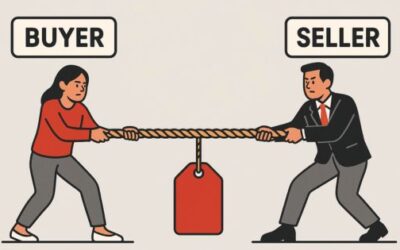Why Your Martyr Mindset Hinders Your Team’s Growth
In the competitive world of sales, many sales leaders often find themselves shouldering numerous responsibilities, striving to boost sales team performance, motivate a sales team, and achieve ambitious targets. Some sales leaders unknowingly fall into the trap of becoming sales martyrs.
AHHHH…not a martyr! Could it be true and you?
The thing is, many sales leaders are reluctant to bring in outside trainers to help their team but have no issue bringing in outside tools for the sales team. Aren’t they one and the same?
Let’s say that your team wants info on their ICP – you do some research and invest in Apollo or a tool like Zoom Info. Your team expands and you invest in Gong or Chorus to be able to coach discovery calls. Yay – winning as a Sales Leader! Look at all those tools helping your team.
You (may) have no issue pouring into all the tech – but when it comes to training and coaching your team – that’s a hard no because you know it all, right?
Unscientific Research
Our team has been having discussions (research) with many sales leaders to ask why they are so reluctant to bringing in a subject matter expert.
It is no surprise, most of these conversations happen when we aren’t recording the call.
We hear anything from, “I want to prove I can do it myself to I’ve been in this seat long enough I should know how to turn the team around to what will the C Suite think if I come to them with a solution that isn’t in-house?” – as well as a host of other wacky statements.
100% of these teams ARE NOT meeting their numbers, yet leaders are unwilling to move past the martyr status to actually step into their leadership and solve a problem.
This can only lead in one direction – and that direction ends up with turnover in the sales leadership role.
Sales Leaders – It’s Time To Look In The Mirror
Recognizing if you’re a sales martyr and are resistant to seeking outside help can be crucial for personal and team growth.
Here are some telltale signs that you might be falling into this trap:
- Reluctance to Attend Workshops or Training: If you find yourself hesitant to attend sales workshops or training sessions, even when they are available, it could be a sign of resistance to outside help. You might fear being perceived as inadequate.
- Fear of Showing Vulnerability: Sales martyrs often avoid seeking assistance because they don’t want to expose any weaknesses. They might believe that asking for help could undermine their authority or competence in the eyes of their team or to senior leadership.
- Refusal to Delegate Training: When you resist bringing in external training, you may take on the burden of training your team single-handedly (woah – add that to your plate). This can be overwhelming and lead to burnout, as you try to be the sole expert in all aspects of sales. THIS IS NOT SCALABLE BTW!!
- Downplaying the Importance of Training: If you consistently downplay the significance of sales training or dismiss it as unnecessary, it may be a sign that you’re avoiding outside help.
- Reluctance to Invest in Training: Sales martyrs may prioritize other aspects of the business over investing in training for their team. They might view training as an expense rather than a valuable investment in their team’s growth.
- Maintaining Status Quo: Resisting outside help can lead to sticking to traditional methods or outdated sales techniques (this is why we love Gap Selling – it’s timeless!). Sales martyrs may resist change and innovation, hindering the team’s ability to adapt and improve.
- Ignoring Employee Feedback: If your team members express the need for additional training or resources, but you dismiss their feedback, it could indicate that you’re resistant to outside input.
- Micromanaging Team Members: A sales martyr might feel the need to control every aspect of their team’s work, fearing that external input could disrupt their approach.
- Limited Networking and Collaboration: A reluctance to connect with other sales leaders or professionals in the industry may suggest a resistance to seeking external perspectives and insights.
- Viewing Training as a Threat: Instead of seeing training as an opportunity for growth, sales martyrs may perceive it as a threat to their position or authority within the organization.
Did Anything Resonate?
Recognizing these telltale signs can be a hard pill to swallow – but it is not too late. There is hope. Subject Matter Experts exist for a reason. Great leaders know when it is time to bring in outside help. By overcoming the fear of vulnerability and realizing that seeking outside expertise is a sign of strength, sales leaders can open up new opportunities for growth and development for themselves and their teams.
And P.S. Along the same vein as being able to do it all yourself – Training the sales team IS NOT THE SAME as Coaching. More on that in a subsequent blog – but you can watch a video I made on that here.





0 Comments